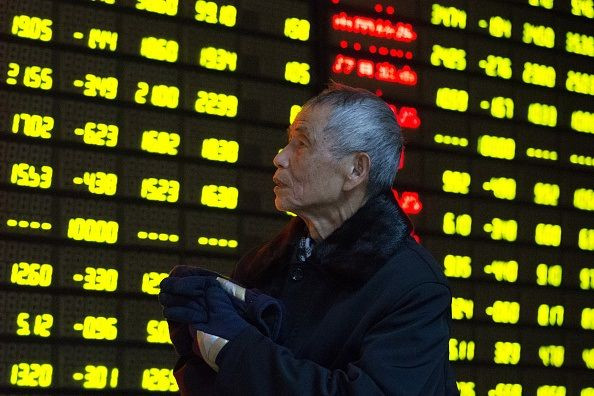Asian Shares Skid As Crude Nears 12-Year Lows

Asian shares skidded on Thursday in the wake of steep losses on Wall Street, while a rout in oil and commodities prices, with crude plumbing 12-year lows, heightened fears about the global economy.
U.S. crude prices were last down slightly at $30.47 a barrel, not far from Tuesday's nadir of $29.93, which was their lowest level since December 2003.
Global benchmark Brent tumbled 1.2 percent to $29.94, after marking fresh 12-year lows.
London copper fell to its lowest since May 2009, compounding worries about the effect of China's waning growth on demand for commodities. Copper fell 0.1 percent to $4,386 a ton after earlier dropping as low as $4,330.
MSCI's broadest index of Asia-Pacific shares outside Japan extended early losses and was down 1.7 percent.
China's main stock indexes fell, with the Shanghai Composite Index trading down 1.2 percent and the CSI300 index off 0.8 percent.
South Korea's KOSPI was down 1.2 percent, after the country's central bank kept interest rates unchanged for a seventh straight month as expected. The bank said it will monitor recent market turmoil sparked by developments in China as well as the effects of the U.S. Federal Reserve's December rate hike.
Japan's Nikkei cratered 3.9 percent, as downbeat domestic data added to the gloom.
Japan's core machinery orders fell 14.4 percent in November from the previous month, down for the first time in three months and marking a bigger decline than economists' median estimate for a 7.9 percent drop.
"Investors are increasingly worried that the (U.S.) market is not strong enough to withstand an initial view that the Fed would hike rates four times this year," said Masashi Oda, senior investment officer at Sumitomo Mitsui Trust Bank.
Boston Fed President Eric Rosengren sounded a cautious tone overnight, saying global and U.S. economic growth may be slipping and could force the Fed into a more gradual course of rate hikes than officials currently expect.
On Wednesday, better-than-expected China trade data lifted Asian sentiment and gave equities and commodities prices a much-needed boost. But those gains unravelled later in the global session, and major U.S. stock indexes finished with sharp losses.
"Despite improved sentiment after the better-than-expected trade balance report in China, risky assets were hit by more evidence of a supply glut in the energy markets that pushed oil prices back to multi-year low levels," strategists at Barclays wrote in a note to clients.
The benchmark 10-year U.S. Treasury yield plumbed its lowest levels since late October as investors sought safety in government debt. It stood at 2.068 percent in early Asian trade, compared with its U.S. close of 2.066 percent on Wednesday.
Undermined by lower U.S. yields, the dollar lost ground to the perceived safe-haven Japanese counterpart. It was buying 117.45, down about 0.2 percent. The euro edged up about 0.1 percent to $1.0884.
Market participants continued to keep an eye on China's yuan. China's yuan weakened at its open on Thursday even after the central People's Bank of China set its midpoint rate at 6.5616 per dollar prior to market open, firmer than the previous fix of 6.563.
The PBOC has held the line on its currency in the past few days, calming fears of a sustained depreciation.
(Additional reporting by Ayai Tomisawa; Editing by Simon Cameron-Moore)
© Copyright Thomson Reuters {{Year}}. All rights reserved.





















